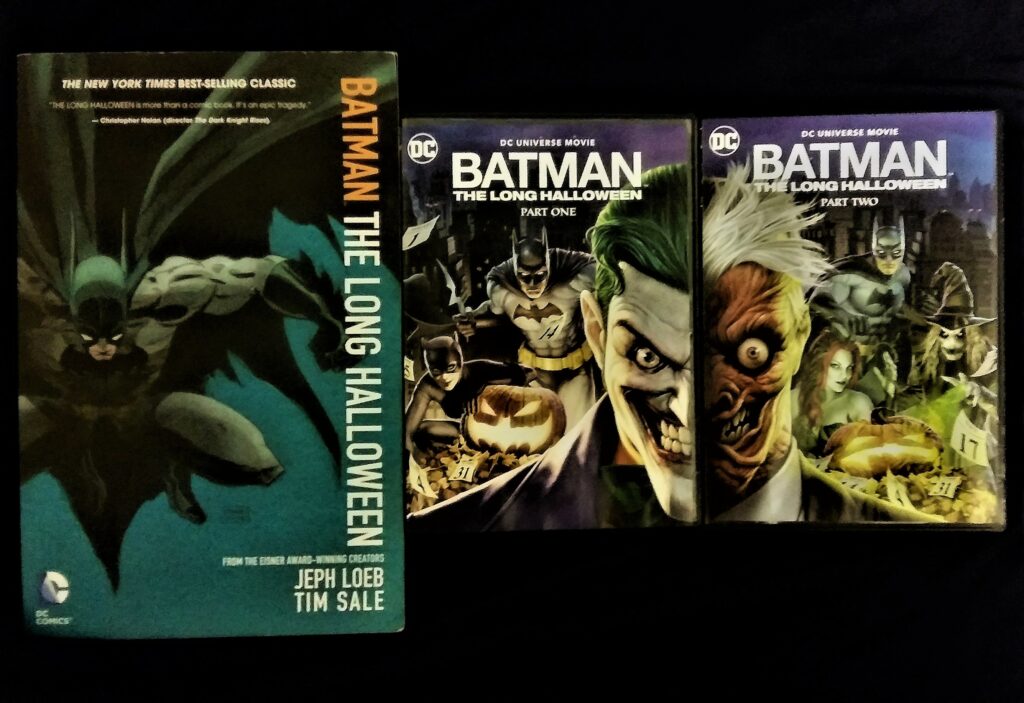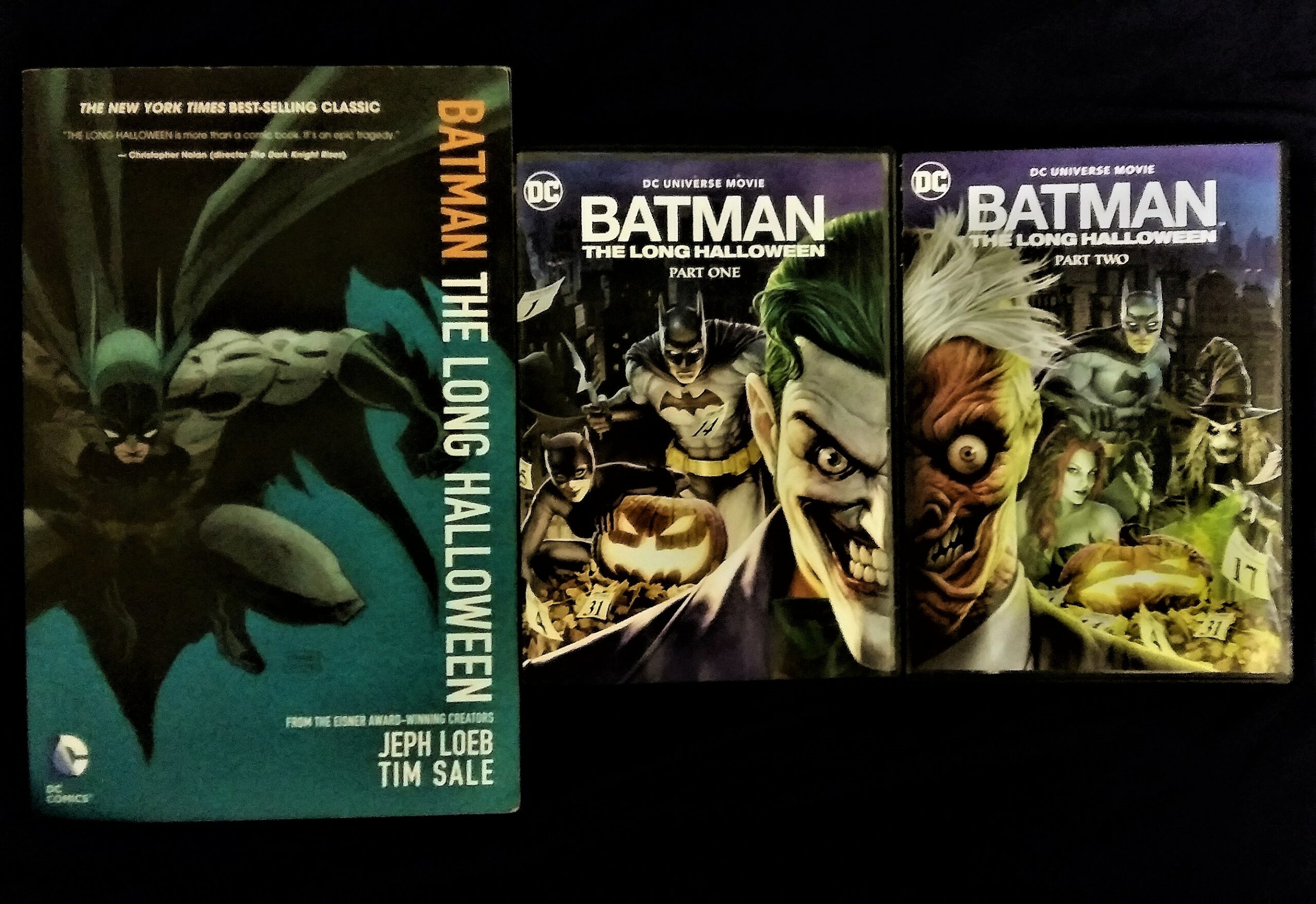How do the films stack up to the graphic-novel?

It’s Halloween: the time of year when I buy candy, put it in a bowl, sit at the front door… and eat it all by myself because I get no trick-or-treaters visiting my area of town. It’s also the set-piece for the most influential Batman graphic novel, “The Long Halloween”.
Written by Jeph Loeb and illustrated by Tim Sale, it was adapted into two animated feature films this summer. “The Long Halloween” changed the Batman mythos into the grittier, down-to-earth setting we know and cherish today.
The graphic novel
Released as a 13-issue event between 1996-1997, the story grounds the fictional Gotham City and its lawman, vigilantes and criminals alike into a believable, realistic world. Focusing less on Batman’s gadgets and mainly on the dangerous social and fiscal politics of organized crime in Gotham, this story takes a darker turn when an assassin named the Holiday killer, begins murdering members of the crime family beginning on Halloween and further heightening mayhem in Gotham City, culminating in the advent of Batman’s more bitter and iconic enemy.
This book heavily influenced “The Dark Knight” trilogy, and apparently the upcoming, uber-imaginatively titled “The Batman” (2022) while also borrowing plot elements from the underrated “Batman Forever” (1995). At its core is a deeply human fable including Batman/Bruce Wayne’s endless crusade, Commissioner Gordon‘s attempts to make time for his family between work and district attorney Harvey Dent’s attempts to strengthen his marital life. However, all are pulled away by the rising and complicated war on crime. Complicated and puzzling, this mystery can only be solved by the world’s greatest detective as he is called, especially when the red-herring becomes the killer, only to become the red-herring again. Armed with intrigue with an edge of cynical brutality and twisted irony, this story asks the question which no reader can answer, “Did the good guys win?”
Review: 4.5/5
The film(s)
Released in June and July of this past summer, both films follow the books closely in tomography with several scenes lifted directly from the graphic novel, specifically when a bathing mobster is murdered, concluding in a bath of blood. I would have preferred the colorful cartoon to look more like the dark, noir aesthetic of Tim Sale’s art, but that’s just me.
Where the films work best is in the voice cast including Jensen Ackles as Batman which is so perfectly fitting it feels supernatural (I don’t know why I made that joke, I never watched the show). However, the most effective voice is that of a psychotic murderer, Calendar Man voiced by David Dastmalchian who first played Thomas Schiff in “The Dark Knight”, a psychotic Joker cult leader in the TV’s “Gotham” and most notably Polka-Dot man in “The Suicide Squad”. (Wow, talk about climbing the comic-book movie corporate ladder).
The film’s change many aspects such as the identity of the Holiday killer, with the red-herring becoming minced herring at the end of “Part One”. Batman here is less world’s greatest detective and more “Batman Year 1.5”. He makes mistakes, gets beaten physically and gets caught at a disadvantage by the crooks he fights quite often. My favorite statement is by a criminal he captured who walked due to lack of evidence; “And I told him where he could stick the cape.” I don’t doubt that.
The best addition is the human development of the prime antagonist mob boss, Carmine Falcone, and how he somewhat becomes like Bruce Wayne’s surrogate father. “All we get is all we take,” he says as he gives young Bruce his lucky coin which later becomes Two-Face’s murder catalyst, a philosophy Bruce takes to heart. In the book, Falcone remains a cardboard-cutout villain, but here he is shown as a tragic figure who knows his sins have finally caught up with him. Near the end of “Part Two,” I asked myself, “Gosh, am I really caring for the bad guy?”
Ending on a depressing note, it lacks the book’s bitter triumph shrouded by unexplained mystery, settling for a more disappointing, nihilistic conclusion answering the question indirectly. Did the good guys win? Yes, but at what cost? I can answer that, “At the cost of being good guys.”
Review: 3.5/5
On a brighter note, I was quite glad Walmart released these films on past-their-prime DVDs as an “exclusive”. Hey Walmart, can you please put new releases on VHS’s as “exclusives” too? Pretty please?
